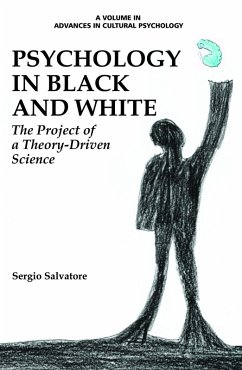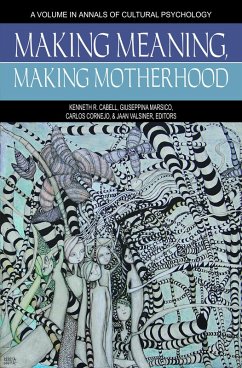
I Activate You To Affect Me (eBook, ePUB)
Versandkostenfrei!
Sofort per Download lieferbar
60,95 €
inkl. MwSt.
Weitere Ausgaben:

PAYBACK Punkte
30 °P sammeln!
The second volume of Annals of Cultural Psychology is dedicated to the affective nature of human social relationships with the environment. The chapters here included explore the historical, theoretical and practical dimensions of the concept of affectivating originally introduced by one of us (Valsiner, 1999), as a potential tool of inquiry into the affectivesensitive dimension of psychological life within a culturalpsychological framework. The concept of affectivating involves two psychological dimensions often undervalued or even obliterated from contemporary cultural psychology, namely the...
The second volume of Annals of Cultural Psychology is dedicated to the affective nature of human social relationships with the environment. The chapters here included explore the historical, theoretical and practical dimensions of the concept of affectivating originally introduced by one of us (Valsiner, 1999), as a potential tool of inquiry into the affectivesensitive dimension of psychological life within a culturalpsychological framework. The concept of affectivating involves two psychological dimensions often undervalued or even obliterated from contemporary cultural psychology, namely the affective involvement and the agentivity of people in their social encounters. Through several examples 'feelingathome', silence spaces and rituals, memorials, music and poetry, among others we show individual's concrete actions in mundane everyday life aim to give an affective personal sense to the world around. This focuses on the primary affective nature of human meaning construction that guides the person in one's continuing feelingintotheworld. At a theoretical level the notion of affectivation challenges contemporary Cultural Psychology to rescue subjectivity, not only symbolism. Affectivation propounds a return to the long, but partially forgotten, organismic tradition, represented in the history by thinkers like Wilhelm Dilthey, Jakob von Uexküll and Kurt Goldstein. Cultural psychology has to bring semiosis back to the vital background of human experience.
Dieser Download kann aus rechtlichen Gründen nur mit Rechnungsadresse in A, B, BG, CY, CZ, D, DK, EW, E, FIN, F, GR, HR, H, IRL, I, LT, L, LR, M, NL, PL, P, R, S, SLO, SK ausgeliefert werden.













